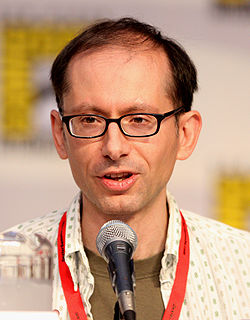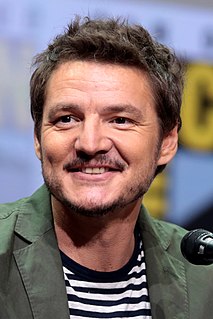Цитата Дэвида X. Коэна
Я бы сказал, что «Футурама: Большой куш Бендера» требует большой концентрации для просмотра. Это очень сложная история о путешествиях во времени. Часть шутки заключалась в том, что сложность была бы чрезмерной. Я бы сказал, что это более прямолинейная научно-фантастическая история. Инопланетное вторжение и люди, бегущие в ужасе, и все такое, с легким уклоном в неуместные физические отношения с большим монстром-осьминогом. У нас получился настоящий научно-фантастический фильм.
Темы цитат
Инопланетянин
Инопланетное вторжение
Большая
сложность
Сложная
концентрация
Художественная литература
Вперед
Получил
неуместное
вторжение
Шутка
Просто
добрый
Много
монстров
Больше
фильма
Осьминог
Слишком
уж
слишком
Люди
Физические
отношения
требуют бега Скажи
науке
Оценка
Легкий
сюжет
Прямой
ужас
Вещь
Время
Топ
-
путешествие Твист
Очень
смотреть
Было
бы хорошо
Связанные цитаты
Я написал книгу, которую считал чистой научной фантастикой, в которой все в значительной степени объяснялось, и вдруг ко мне пришла идея, которая, как мне показалось, была довольно удобной для работы с мифологическим углом зрения. Я действительно борюсь с собой. Возможно, было бы лучше, если бы я включил ее в книгу, но, с другой стороны, мне не всегда нравится возвращаться к ней. Я думаю, что я собираюсь разнообразить свою продукцию, сделать немного чистой научной фантастики и немного чистой фантастики, не связанной с мифологией, и композиты.
Настоящее происхождение научной фантастики лежит в романах семнадцатого века об исследованиях сказочных земель. Поэтому рассказ Жюля Верна о путешествии на Луну является научной фантастикой не потому, что они летают на ракете, а из-за того, куда они летят. Это было бы такой же научной фантастикой, если бы они использовали резинку.
Научная фантастика — странная категория, потому что это единственная область фантастики, о которой я могу думать, где история не имеет первостепенного значения. Научная фантастика, как правило, больше о науке, изобретении фантастического мира или политической аллегории. Когда я ушел из научной фантастики, я сказал: «Их больше интересуют планеты, а меня интересуют люди».
У меня очень много любимых фантастических фильмов. Я бы сказал, что «Чужой» и «Чужие» — два моих любимых научно-фантастических фильма. Также «Дети человеческие» были бы одним из моих любимых научно-фантастических фильмов. Я люблю оригинальный «Солярис» и ремейк. И хотя это не был фильм, сериал «Звездный крейсер Галактика» был одним из моих любимых сериалов.
Я бы сказал, что большинство моих книг — это современная реалистическая фантастика... пара, может быть, три книги попадают в категорию «историческая фантастика». Научная фантастика не мой любимый жанр, хотя некоторые работы Урсулы ЛеГуин мне очень понравились. Я мало читал научную фантастику, поэтому других авторов-фантастов не знаю.
Литературная научная фантастика — это очень, очень узкая полоса издательского бизнеса. Я люблю научную фантастику больше в смысле поп-культуры. И, кстати, грань между научной фантастикой и реальностью сильно размылась в моей жизни, когда я участвовал в глубоководных экспедициях, работал над реальными космическими проектами и так далее. Поэтому я склонен быть более очарован реальностью научно-фантастического мира, в котором мы живем.
Литература сейчас настолько непрозрачна для обычного человека, что вы не можете взять научно-фантастический рассказ, опубликованный сейчас, и превратить его в фильм. Вам придется заложить слишком много подготовительной работы. Хорошо иметь детализацию и плотность, но если вы полагаетесь на то, что всю жизнь являетесь поклонником научной фантастики, чтобы понять, о чем история, то она не будет переведена на более широкую аудиторию.
В некотором смысле быть мормоном подготавливает вас к научной фантастике, потому что мы живем одновременно в двух очень разных культурах. В результате мы все знаем, каково это быть чужаками в чужой стране. Это не просто совпадение, что есть так много эффективных мормонских писателей-фантастов. Мы не рассматриваем быть инопланетянином как инопланетный опыт. Но это также означает, что мы не удивляемся, когда люди не понимают, что мы говорим или о чем думаем.
Наверное… с одной стороны, я слишком много времени проводил за просмотром научной фантастики и чтением научной фантастики, когда рос. Но отчасти я также никогда не чувствовал особой связи с миром, в котором жил, пока рос, и поэтому, как ни странно, я думаю, что чувствовал гораздо большую связь с мирами, о которых я читал в науке. вымысел.





































